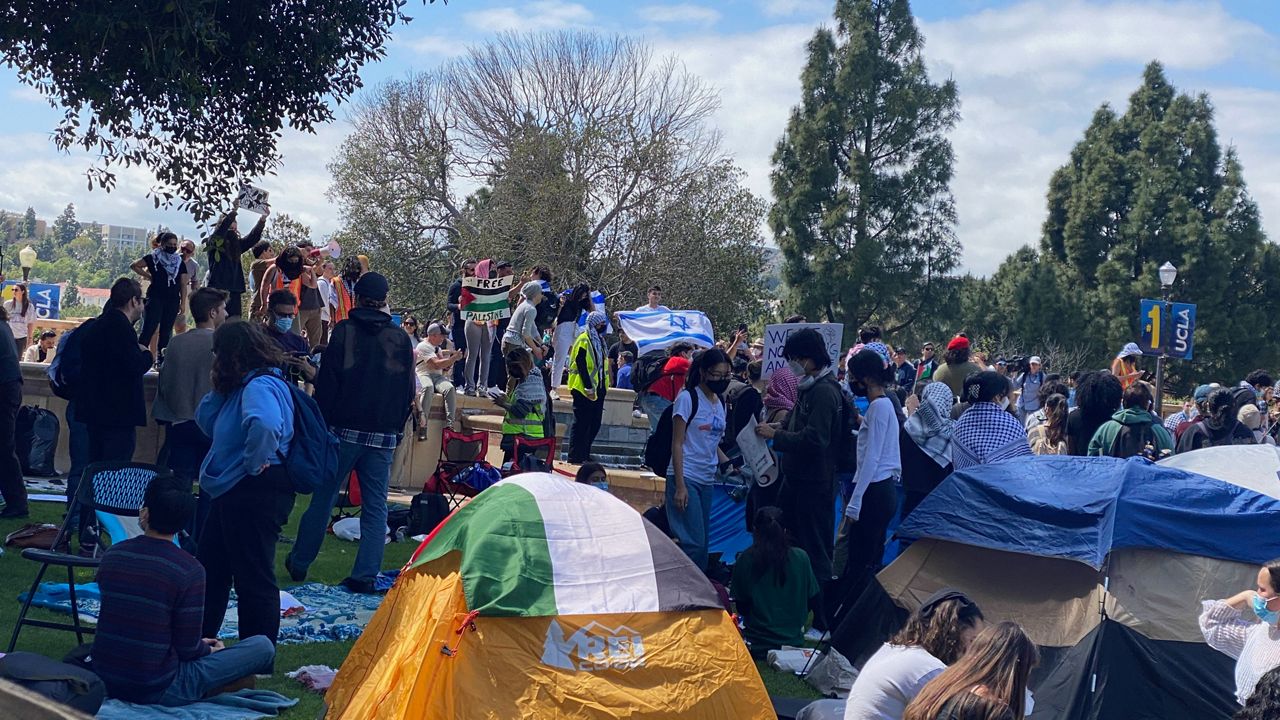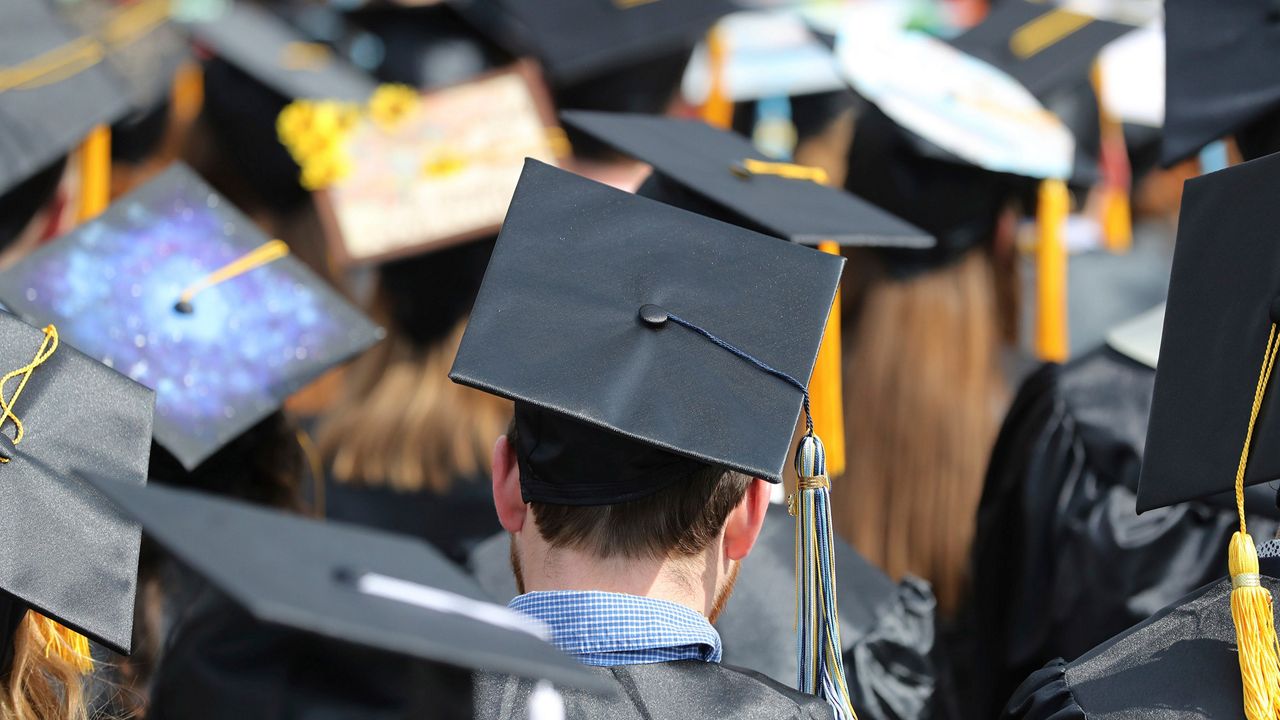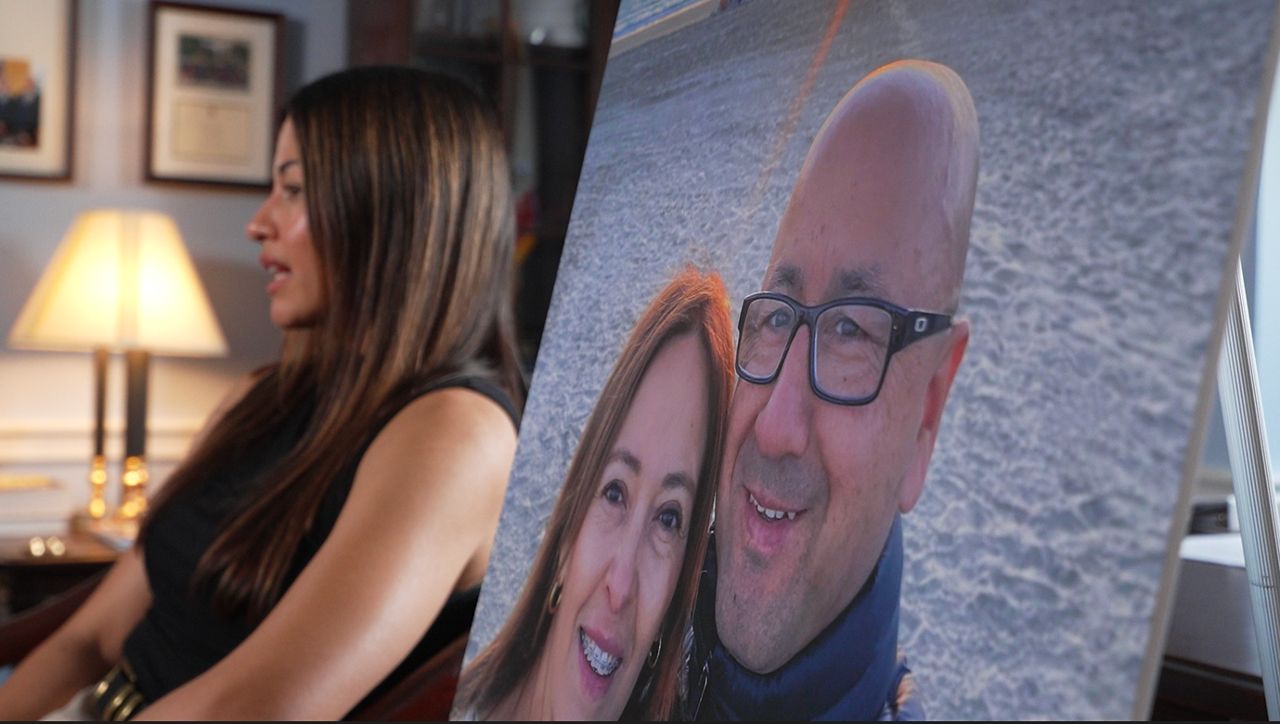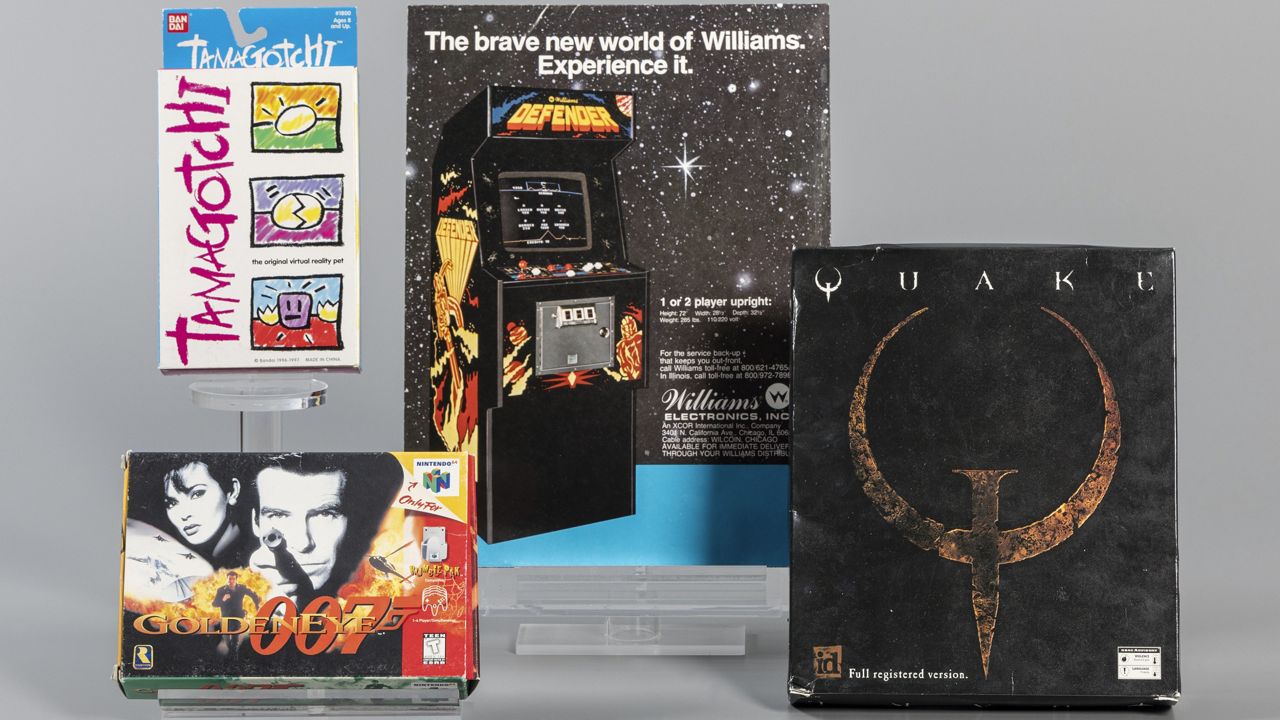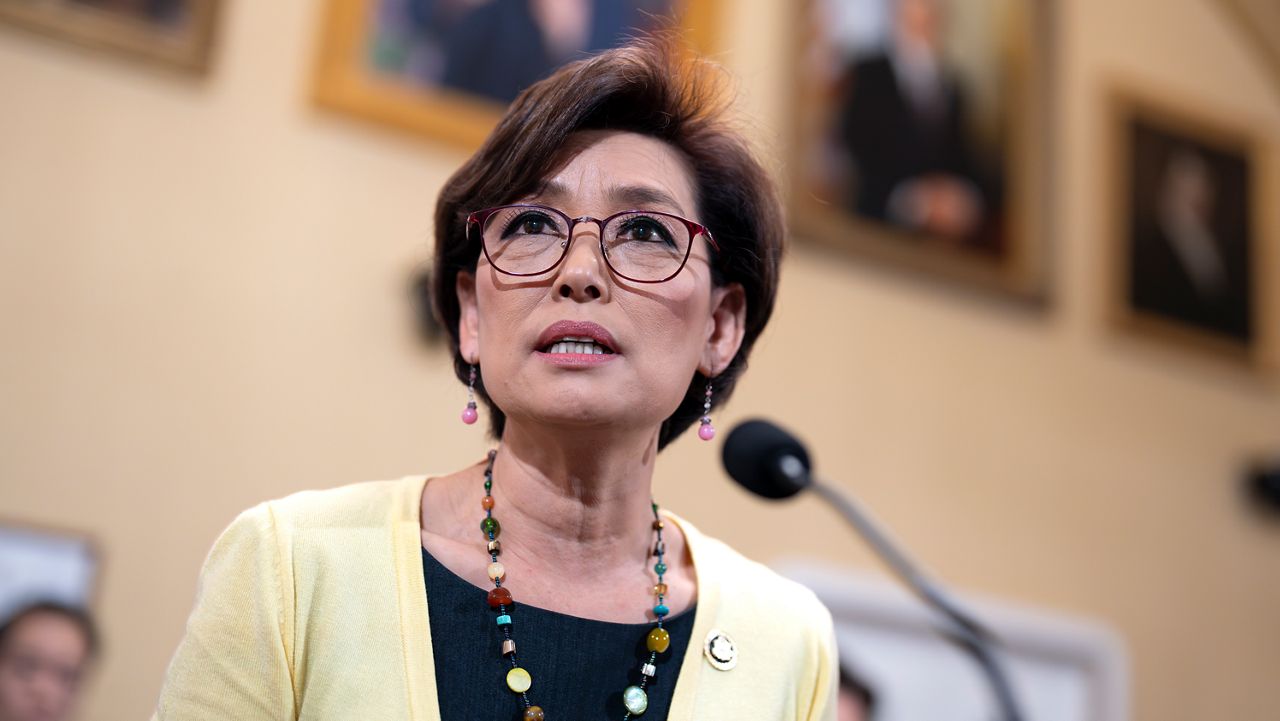At one end of Royce Quad at University of California, Los Angeles, the boundaries of the hours-old Palestinian Solidarity Encampment stretched eastward.
At the other, located by a feature known as the Shapiro Fountain, two groups were shouting dueling chats at one another.
Or they would have been dueling, had pro-Israel counterprotesters had not been drowned out by a small group of musicians — a trumpet, an accordian, some drums, and at least a dozen voices chanting for a free Palestine. At the heart of the protest was the desire to end the war between Israel and Hamas — one in which about 34,000 Palestinians have been killed since Hamas militants broke a tense cease-fire on Oct. 7, 2023, killing about 1,200 Israelis, and taking hundreds hostage.
Yet if there was any greater conflict during the morning and afternoon Thursday at the quad, it wasn’t obvious. Media, students, visiting onlookers and more than a few security guards formed a ring around the encampment of dozens of tents, and hundreds of students, educators and community members. The encampment itself was fenced off with old pallets and plywood boards, which were then covered in signs from different organizations around the campus and Los Angeles.
"It’s been quite lovely. We’ve had so many people come out and show support, which is very encouraging," Kaia Shah, a post-graduate researcher at UCLA told Spectrum News. "It just does go to show that our community here at UCLA cares deeply about this humanitarian crisis. We have people from all sorts of different backgrounds, racial and class and gender backgrounds who are out here supporting the cause and fighting for divestment."
UCLA’s divestment from BlackRock — a global investment management firm that does business in Israel and has holdings in military weapons companies — is one of a handful of demands the encampment seeks, Shah said. The others include greater financial transparency from the university, abolishing surveillance of pro-Palestinian activists, asking the university to acknowledge a genocide in Palestine and a boycott of study abroad programs in Israel.
Thus far, the protesters haven’t heard from university administration. UCLA has also not yet responded to an email requesting comment on discussions with the protesters.
In a separate statement, the school said that it is monitoring safety at the encampment.
“Our top priority is always the safety and wellbeing of our entire Bruin community. We’re actively monitoring this situation to support a peaceful campus environment that respects our community’s right to free expression while minimizing disruption to our teaching and learning mission,” said Mary Osako, vice chancellor of UCLA Strategic Communications.
Safety and security were apparently paramount to the encampment protesters, as well — two points of entry and exit were built into the space, and members of the encampment stood sentry on the perimeter, politely asking counterprotesters to leave when their conversations got heated with pro-Palestinian protesters.
That appears to have been part of the plan — Shah said that the plan was to "just not engage" with counterprotesters. The chants, which escalated in volume as counterprotesters spoke up, were among their tactics. Many within the encampment pulled friends away from shouting matches, seeking to douse rising temperatures.
But the lack of engagement was disappointing to Sam G., a UCLA student who spent much of his time around the encampment waving an Israeli flag.
"It’s been a little amusing chattting with people, because halfway through the conversation, somebody will come over and tell them to stop talking to me," the student said. Notably, especially when speaking directly with people, he waved his flag in a manner that continually brushed it against others — and sometimes, toward their faces.
The conversation around Israel and Palestine, he said, is derailed by hatred.
"I think Israeli protesters, many of them do not understand that those protesting for Palestine, by and large, are honorable and they believe they’re right, and vice versa. I think that Palestinian protesters should understand that Israeli protesters are standing up for our homeland and standing up for what we believe is right," said the student.
The quad was packed with non-students as well, of course. Some, like Elly Levy, held signs professing that they are "beyond horrified" at the "terror and wanton mass slaughter of children" in Palestine.
Others, like Orange County and San Bernardino County residents Ayesha Kamran and Farzana Jamgbarwala, drove about 50 miles to UCLA to drop off loads of fresh food to share with the protesters.
"It makes me proud," Kamran said, adding that’s happy to support students she feels are on the right side of history. "I want to be able to tell my grandkids that this is what we did — we didn’t sit silent and yell at the TV."
On the steps of Royce Hall, on the northern boundary of the quad, professors and lecturers at UCLA stood vigil with a banner expressing their support for the protesting students.
Michael Chwe, a professor of political science, noted that California has a long history of effective student protests "which have changed all of our lives for the better."
"We need to make sure that people understand: people can disagree about all sorts of stuff, a lot of issues can be tense, but in those situations, you should go back to the basis of democracy: that people have a right to peacefully protest," Chwe said. "By expressing ourselves, by learning form each other, that’s how we all gain from each other, especially in a university — and, of course, the society at large."
There was some middle ground to be found. Daniel Goldberg, who was standing with Sam G., felt that Israel’s current right-wing government has done enough to limit civilian deaths, and he’s hopeful that the country will hold elections — potentially to oust Prime Minister Benjamin Netanyahu — after the conflict in Gaza has ended. He also believes in a two-state solution that allows for both Israel and Palestine to exist.
Sam G. said that he wasn’t interested in fighting, just exchanging ideas — though he shrugged when asked if his method of up-close-and-personal flag waving might be putting people off. ("Anything I can do can make people uncomfortable. That’s on them to decide how they want to interpret it," he said.)
"I'm not here to tell these people that they’re evil or that I hate them, I'm here to tell them that I think they're wrong," Sam G. said. "I’d like to talk to them. And I hope that in the future Palestinians and Israelis will be able to exist peacefully together. But I don't see that happening anytime soon."
Shah didn’t see an end to the encampment coming anytime soon, either. She and others within the encampment were skeptical of police coming to sweep the area, unlike the slew of arrests that were made at college campuses around the country and just across Los Angeles. Nearly 100 people were arrested by Los Angeles police at the University of Southern California on Wednesday.
"We plan on being here until UCLA meets our demands," she said, noting that the focus of the protests is on the thousands of killings since Oct. 7. "If the police come here, that’s really nothing in comparison to what is happening in Gaza."
NOTE: This story has been updated.




